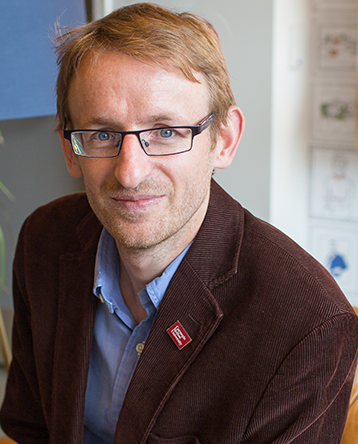Hamish Gordon
Assistant Professor, Chemical Engineering
Courtesy Appointments, Mechanical Engineering
Assistant Professor, Chemical Engineering
Courtesy Appointments, Mechanical Engineering

Hamish Gordon is an assistant professor in the department of chemical engineering and the Center for Atmospheric Particle Studies. His research interests are focused on the effects of air pollution and natural airborne particles on clouds and climate. He received his first degree from the University of Cambridge in 2009, and his doctorate from the University of Oxford in experimental high energy physics in 2013. He moved to Carnegie Mellon from a postdoc position at the University of Leeds in 2019.
Gordon’s research in atmospheric science is based around developing weather prediction and climate models. He aims to help the models better represent airborne particulate matter and its effect on clouds. To improve the models, he simulates particular regions of interest at high resolution to study atmospheric processes. He compares the simulations with detailed observations of atmospheric properties. He has also participated in the collection of these observations, and in laboratory experiments designed to help improve models. He continues to be involved in the CLOUD experiment at CERN, where he worked from 2013 to 2016. This experiment studies the formation of new particles in the atmosphere from gases such as sulfuric acid. More recently, he also participated in an aircraft study of how smoke mixes into clouds above the south Atlantic Ocean.
2013 Ph.D., Physics, Oxford
2010 MS, Natural Sciences, Cambridge
2009 BA, Natural Sciences, Cambridge
Chemical Engineering
The Gordon Group uses case studies from Delhi and Paris to realistically simulate fog droplet concentrations in a weather forecasting model.
Chemical Engineering
The molecules and processes that contribute to atmospheric particle formation are underrepresented in climate models. Experiments at CERN are filling in missing information.
ChemE Ph.D. student Victor Sanchez was the 2nd place winner of the Oral Student Presentation Award at the Conference on Probability and Statistics during the American Meteorological Society (AMS) annual meeting.
Chemical Engineering
Researchers designed a setup of the global climate model that adds the capability to simulate air pollutants in simulations like weather forecasts.
Scott Institute
Three CMU-led energy projects have been awarded seed grants from the Wilton E. Scott Institute for Energy Innovation.
Civil and Environmental Engineering
PhD candidate Pratapaditya Ghosh has been awarded the Air Quality Research and Study scholarship from the Air & Waste Management Association (A&WMA). Advised by Professor Hamish Gordon, Ghosh's research looks to understand how aerosol particles activate to form fog and cloud droplets.
WTAE
ChemE’s Hamish Gordon spoke with WTAE about a recent accidental release of benzene into the air from the Shell ethane cracker plant in Beaver County, PA. While benzene is a toxic volatile organic compound, Gordon thinks acute or immediate health effects from this release are unlikely.
Civil and Environmental Engineering
CEE Ph.D. student Noah Asch has been granted the 2023 National Defense Science and Engineering Graduate (NDSEG) Fellowship Award by the US Department of Defense.
CMU
MechE’s Ryan Sullivan and Research Accelerator Hamish Gordon have received funding from the Department of Energy to continue studying how wildfire emissions could affect the climate.
Wilton E. Scott Institute for Energy Innovation
Faculty affiliates Ryan Sullivan and Hamish Gordon have received a new atmospheric research award from the Department of Energy aimed at improving climate change predictions.
CMU Engineering
A new discovery sheds light on one way new particles are forming in the upper troposphere. Published in Nature, the study’s findings suggest that in addition to carbon dioxide, there are other compounds in need of immediate attention and regulation.
Chemical Engineering
The Pennsylvania Department of Environmental Protection (DEP) has declared a Code Orange Air Quality Action Day for fine particulate matter in Pittsburgh and several surrounding counties. Assistant Research Professor, Hamish Gordon, explains what led to the current conditions.